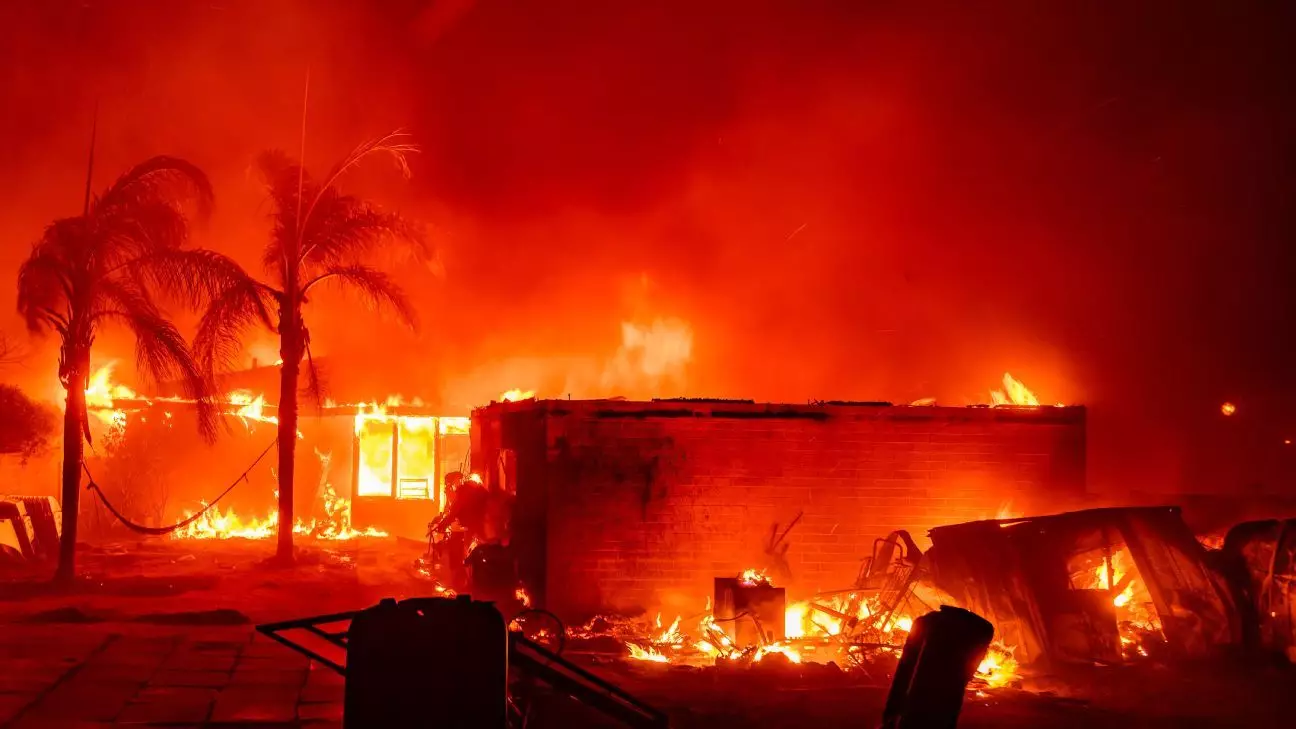As the flames continue to rage across Los Angeles, wildfires have not only cast a shadow over the city’s scenic vistas but also jeopardized major sporting events, particularly the NFL playoffs. The looming threat of these fires raises critical concerns about player safety, air quality, and the feasibility of hosting games in historically tumultuous conditions.
Wildfires in California have become a persistent threat, wreaking havoc across several communities and forcing widespread evacuations. The NFL, taking notice of the rapidly deteriorating conditions, announced that it is closely monitoring the wildfires’ impact on the highly-anticipated wild-card playoff matchup between the Minnesota Vikings and Los Angeles Rams scheduled for SoFi Stadium. As a contingency measure, the NFL has planned to potentially relocate the game to State Farm Stadium in Glendale, Arizona, should circumstances warrant such a drastic decision. This isn’t just a precaution but a necessary response, considering the severity of wildfires in the region and their erratic behavior that can threaten safety.
The league’s decision reflects a growing trend where environmental factors significantly influence professional sports, particularly in areas susceptible to natural disasters. In a vivid reminder of past occurrences, the NFL recalls its 2003 decision to move a regular-season game from San Diego to Tempe, Arizona, due to similar wildfire conditions. Such measures are essential for ensuring both the safety of players and the integrity of the game.
The Los Angeles Rams and Chargers are directly confronting these wildfires while they prepare for their respective playoff games. The Rams have stated that no players or staff members have been affected by the fires thus far, but the proximity of their headquarters to the burning areas cannot be overlooked. Star receiver Cooper Kupp’s expression of solidarity with those impacted by the fires reassures fans that athletes are cognizant of their communities’ struggles amid the chaos of the sporting world.
Meanwhile, the Chargers have adjusted their practice schedules to safeguard player health. Particularly concerning is the atmospheric quality index, which has reported alarming levels ranging from “very unhealthy” to hazardous. The Chargers’ proactive decision to limit outdoor activities illustrates the significant role that air quality plays in training routines during wildfire seasons. Players, including quarterback Justin Herbert, continue to train under these challenging conditions, indicating a mix of resilience and adaptability in the face of adversity.
The wildfires’ repercussions extend beyond the immediate health risks posed to players and staff; they illuminate larger issues of climate change, environmental management, and community well-being. The Los Angeles Fire Department has emphasized the need for off-duty firefighters to assist with the ongoing battle against the flames, with tragic reports confirming fatalities and injuries. The wildfires have highlighted how California’s climate patterns are changing, leading to extended fire seasons that overlap with historically cooler winter months.
These events serve as a stark reminder that the challenges posed by climate change extend to all facets of life, including sports. With rising temperatures leading to more frequent and severe wildfires, it’s imperative for leagues like the NFL to rethink how they approach scheduling, player health, and community interactions. The Chargers’ commitment to donate $200,000 to local organizations underscores the importance of sports franchises taking social responsibility seriously, as they can leverage their platforms for greater community impact.
While the NFL navigates the unpredictable waters of climate-related disruptions, stakeholders must recognize the urgent need for proactive measures. Fans, players, and organizations alike should intensify their awareness of how climate change affects not only sports but everyday life. The time for reflection and action is now, as leagues need to devise comprehensive policies that address these challenges head-on.
Ultimately, the ongoing wildfires serve as both a physical and metaphorical warning. They challenge us to contemplate our roles in a changing world and push for necessary reforms. As communities unite against the flames, the hope remains that not just the NFL, but all professional sports leagues, will take actionable steps to ensure the safety and well-being of players, staff, and fans alike in these turbulent times. The intersection of sports and environmental sustainability is more than just a narrative; it’s a call to invest in our future while navigating the game we love.

Leave a Reply